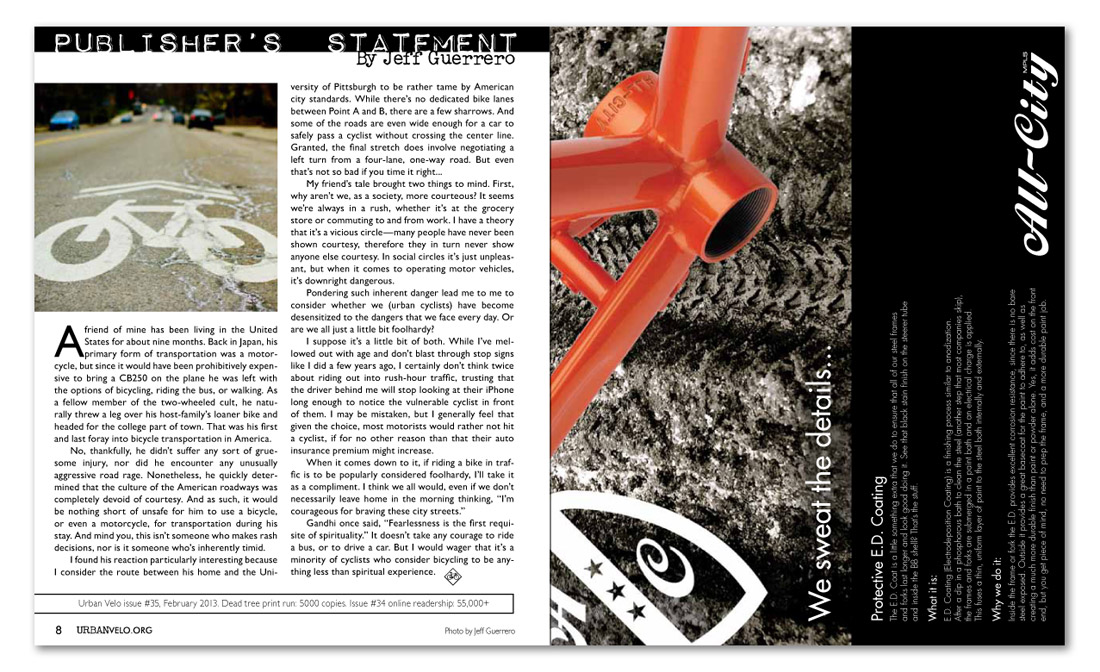


Publisher's Statement
A friend of mine has been living in the United States for about nine months. Back in Japan, his primary form of transportation was a motorcycle, but since it would have been prohibitively expensive to bring a CB250 on the plane he was left with the options of bicycling, riding the bus, or walking. As a fellow member of the two-wheeled cult, he naturally threw a leg over his host-family’s loaner bike and headed for the college part of town. That was his first and last foray into bicycle transportation in America.
No, thankfully, he didn’t suffer any sort of gruesome injury, nor did he encounter any unusually aggressive road rage. Nonetheless, he quickly determined that the culture of the American roadways was completely devoid of courtesy. And as such, it would be nothing short of unsafe for him to use a bicycle, or even a motorcycle, for transportation during his stay. And mind you, this isn’t someone who makes rash decisions, nor is it someone who’s inherently timid.
I found his reaction particularly interesting because I consider the route between his home and the University of Pittsburgh to be rather tame by American city standards. While there’s no dedicated bike lanes between Point A and B, there are a few sharrows. And some of the roads are even wide enough for a car to safely pass a cyclist without crossing the center line. Granted, the final stretch does involve negotiating a left turn from a four-lane, one-way road. But even that’s not so bad if you time it right...
My friend’s tale brought two things to mind. First, why aren’t we, as a society, more courteous? It seems we’re always in a rush, whether it’s at the grocery store or commuting to and from work. I have a theory that it’s a vicious circle—many people have never been shown courtesy, therefore they in turn never show anyone else courtesy. In social circles it’s just unpleasant, but when it comes to operating motor vehicles, it’s downright dangerous.
Pondering such inherent danger lead me to me to consider whether we (urban cyclists) have become desensitized to the dangers that we face every day. Or are we all just a little bit foolhardy?
I suppose it’s a little bit of both. While I’ve mellowed out with age and don’t blast through stop signs like I did a few years ago, I certainly don’t think twice about riding out into rush-hour traffic, trusting that the driver behind me will stop looking at their iPhone long enough to notice the vulnerable cyclist in front of them. I may be mistaken, but I generally feel that given the choice, most motorists would rather not hit a cyclist, if for no other reason than that their auto insurance premium might increase.
When it comes down to it, if riding a bike in traffic is to be popularly considered foolhardy, I’ll take it as a compliment. I think we all would, even if we don’t necessarily leave home in the morning thinking, “I’m courageous for braving these city streets.”
Gandhi once said, “Fearlessness is the first requisite of spirituality.” It doesn’t take any courage to ride a bus, or to drive a car. But I would wager that it’s a minority of cyclists who consider bicycling to be anything less than spiritual experience.
All City